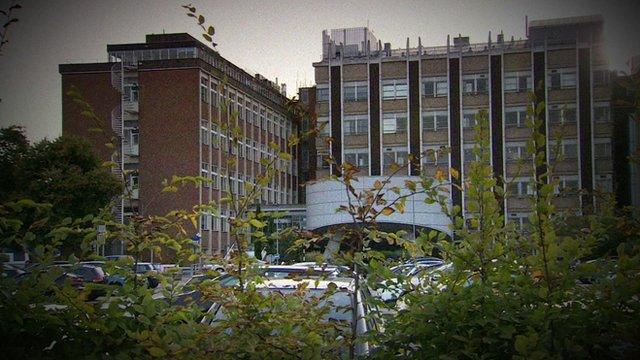Addenbrooke's and Rosie hospitals' patients 'put at risk'
- Published
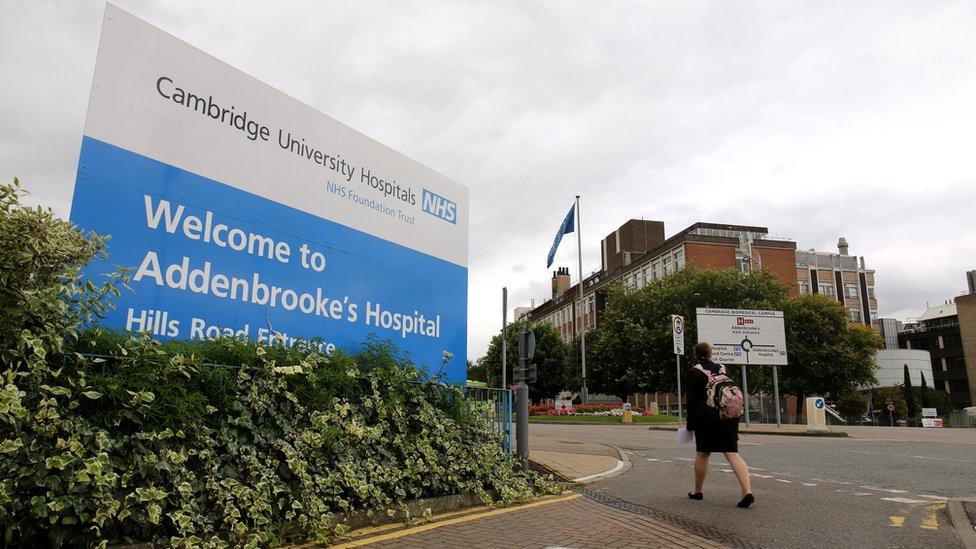
Cambridge University Hospitals controls the Addenbrooke's and Rosie facilities in the city
One of the UK's biggest NHS trusts has been placed in special measures after inspectors found it was "inadequate".
Cambridge University Hospitals Trust, which runs Addenbrooke's and the Rosie Birth Centre, was inspected by the Care Quality Commission in April and May.
Inspectors expressed concerns about staffing levels, delays in outpatient treatment and governance failings.
But they said workers were prepared to go the extra mile for patients, rating the quality of care as "outstanding".
'Slap in face'
Prof Sir Mike Richards, the Care Quality Commission's (CQC) chief inspector of hospitals, said while hospital staff were "extremely caring and extremely skilled", senior management had "lost their grip on some of the basics".
"[Patients] are being put at risk," he said. "It is not that we necessarily saw actual unsafe practice but we did see they would be put at risk if you don't, for example, have sufficient numbers of midwives for women in labour."
The trust, which is said to be predicting a £64m deficit this year, has apologised to patients.
Gary Matthews says his operation was cancelled four times
Monitor, the health service regulator which has placed the trust in special measures, said it had an average overspend of £1.2m a week.
The trust's chief executive Dr Keith McNeil, who unexpectedly quit last week, told the BBC he left because he did not believe he had the right skills to deal with the hospital's financial crisis rather than the damning CQC assessment.
He reiterated that he felt the verdict was wrong, adding the trust was "naive" about the inspection.
"I absolutely put up my hand to say there is some things that I should have [had a] grip on, but it's hard for any one person or team to be cognisant of everything that's going on in a hospital of that complexity at every moment," he said.

Addenbrooke's recent troubled history
The trust's chief executive, Keith McNeil, stepped down suddenly last week, citing "a number of very serious challenges, external"
Chief finance officer Paul James also quit ahead of the Care Quality Commission's report
It comes months after paedophile doctor Myles Bradbury was jailed for abusing 18 boys in his care at Addenbrooke's

The public sector union Unison, which represents health workers, said the inspections reflected unfairly on staff.
Spokesman Stuart Tuckwood said: "To be told that the hospital is inadequate... is a slap in the face to our members and the healthcare staff that work there.
"The one thing that came out as really outstanding was the care delivered by our members and by all the staff at the hospital, so they can really hold their heads up and say they've done a good job under really trying conditions."
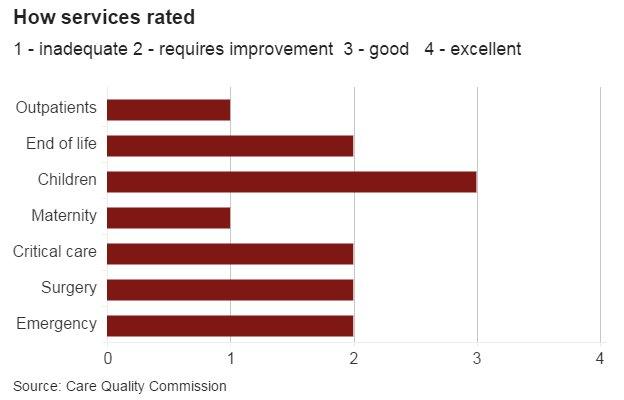
The CQC found staff shortages and long-standing "serious" problems had been ignored.
Dr Keith McNeil quit his post unexpectedly last week
Its report, external said the trust must develop and implement a plan to address its financial deficit and strengthen leadership by working with an "improvement director" appointed by Monitor.
Trust chairwoman Jane Ramsey said: "I would like to say sorry to our patients for a lack of effective systems and processes across our trust, which led to the CQC rating our hospitals as inadequate.
"We will take rapid action to address concerns and maintain our record of safety and high-quality care."

Key findings at Addenbrooke's and Rosie hospitals
A "significant shortfall of staff" in a number of areas resulted in staff being moved from one service to another and patients being cared for by workers without relevant training
Pressure on surgical services meant routine operations were frequently cancelled and, despite some outstanding maternity services, staffing issues led to regular closures
Important messages from the clinical divisions were not highlighted at trust board level
Introducing the £200m EPIC IT system for clinical records affected the "ability to report, highlight and take action on data" and meant medicines were not always prescribed correctly
Inspectors found "caring staff who did everything they could for patients" and "efficient" and "effective" emergency and major trauma departments
Source: CQC, external

According to Monitor, external, after NHS trusts and foundation trusts are put in special measures, the CQC will "focus on identifying failures in the quality of care, judging whether improvements have been made and, where necessary, [use] enforcement powers to ensure that providers who are unable to meet required standards of quality and safety are not allowed to continue indefinitely".
Monitor also imposed a new condition on the trust's licence, enabling it to take further action, such as replacing senior staff, if improvements are not made swiftly enough.

Analysis
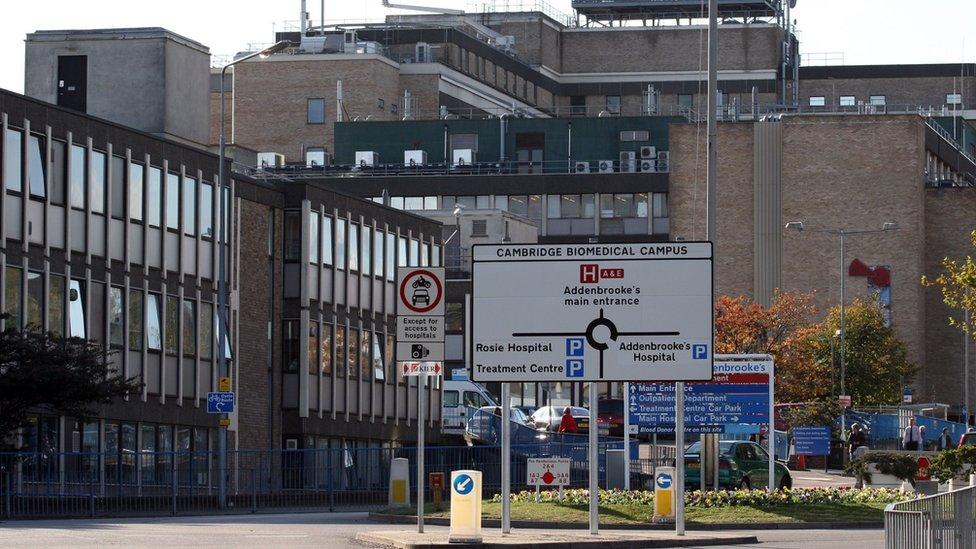
By Nick Triggle, Health Correspondent
Perhaps the most worrying aspect of the Addenbrooke's story is not that such a world-renowned hospital has ended up in a predicament like this, but rather that it happened so quickly.
A year ago the trust which runs the hospital - Cambridge University Hospitals NHS Foundation Trust - wasn't even on the Care Quality Commission's radar in terms of being a failing centre.
In fact, two years ago - as the regulator was embarking on its new inspection regime - it was among the band of hospitals considered to be the safest, according to the risk-rating system at the time.
But now a hospital which can boast to being a centre of excellence for major trauma, transplants, cancer, neurosurgery, genetics and paediatrics, has been judged to be a basket case and will join the 12 other failing hospitals already placed in special measures.
So what does this tell us about the state of health of the NHS? Sir Mike Richards, the CQC's chief inspector of hospitals, believes Addenbrooke's problems are largely of its own making, criticising the trust's management for "losing grip".
The CQC report says the hospital is failing on safety but is still providing outstanding care, which may seem like a contradiction. But the criticisms are about overall management and low staff recruitment, rather than the quality of care given by individual members of staff who are doing a great job.
Certainly it seems to have made mistakes - as the troubles with its £200m computerised patient records programme illustrates - but it's hard to escape the feeling that this is just the tip of the iceberg.

The CQC also found routine operations were frequently cancelled and maternity services regularly closed.
It said high levels of nitrous oxide, used as pain relief in childbirth, were detected at Rosie Hospital's birthing centre, but the only action taken to address it was to open windows.
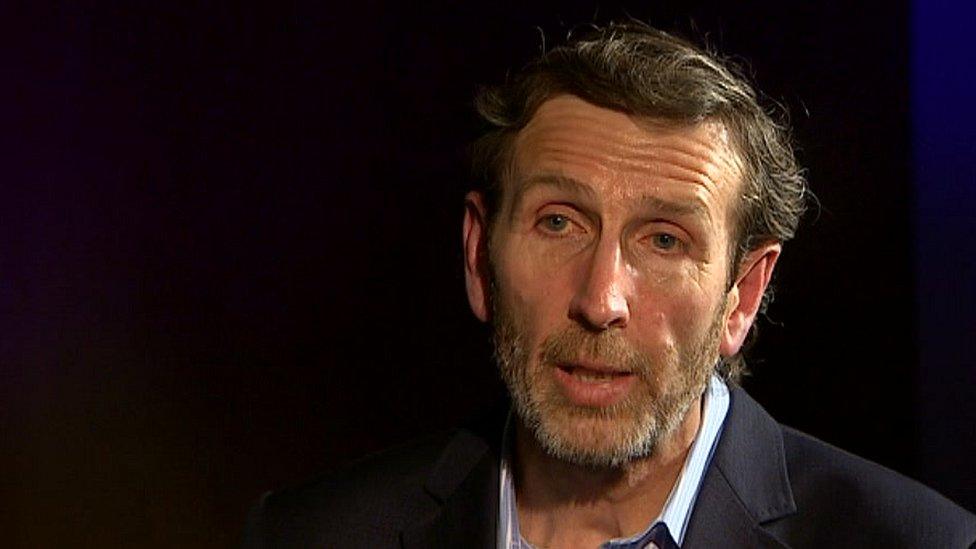
Dr Keith McNeil left the trust last week, citing "serious challenges"
Stephen Hay, Monitor's managing director of provider regulation, said: "Patients treated at Cambridge University Hospitals NHS Foundation Trust deserve to receive the highest possible care, and so the failings that we and the CQC have identified in the trust's services are disappointing.
"It's reassuring that the trust has already started to address some of the issues, but much more needs to be done.
"Special measures will ensure it gets the extra help and support it needs."
- Published22 September 2015
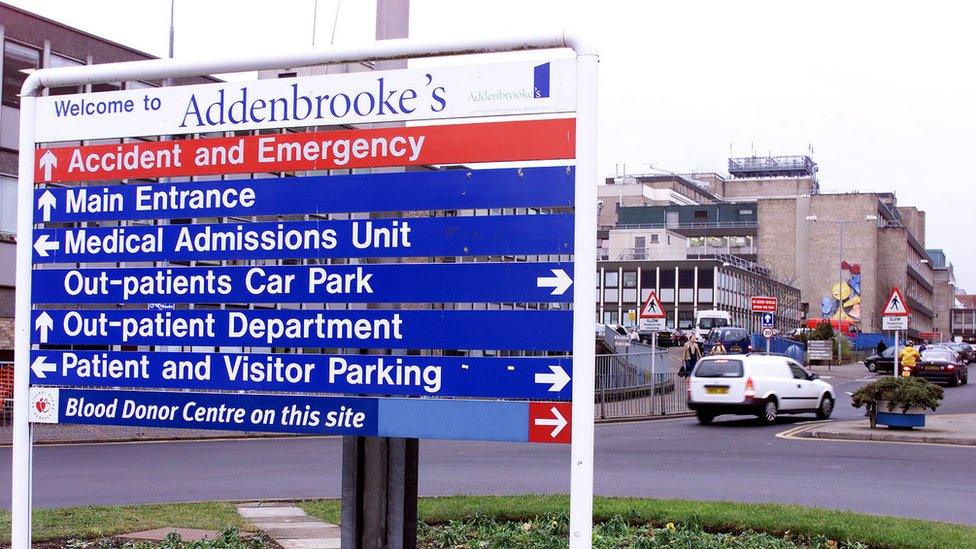
- Published22 September 2015
- Published22 September 2015
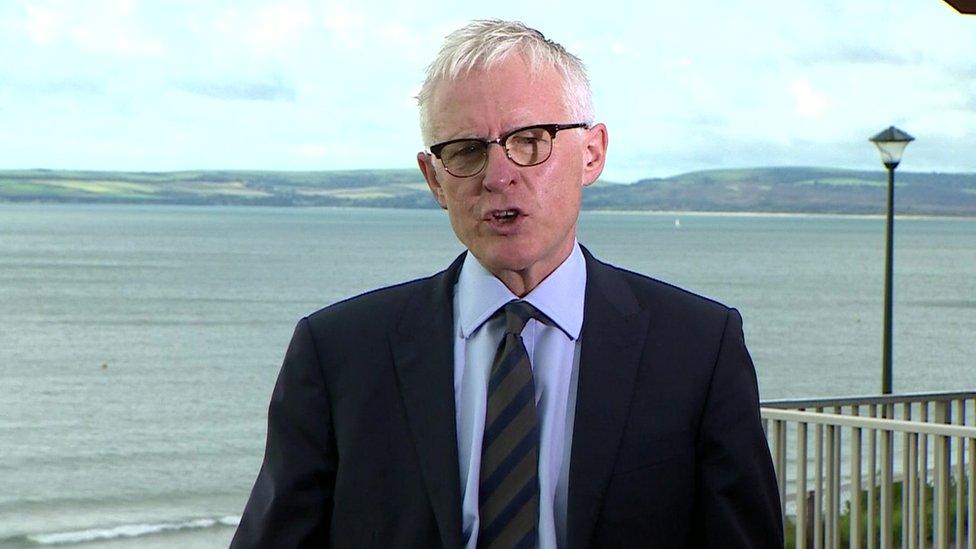
- Published18 September 2015
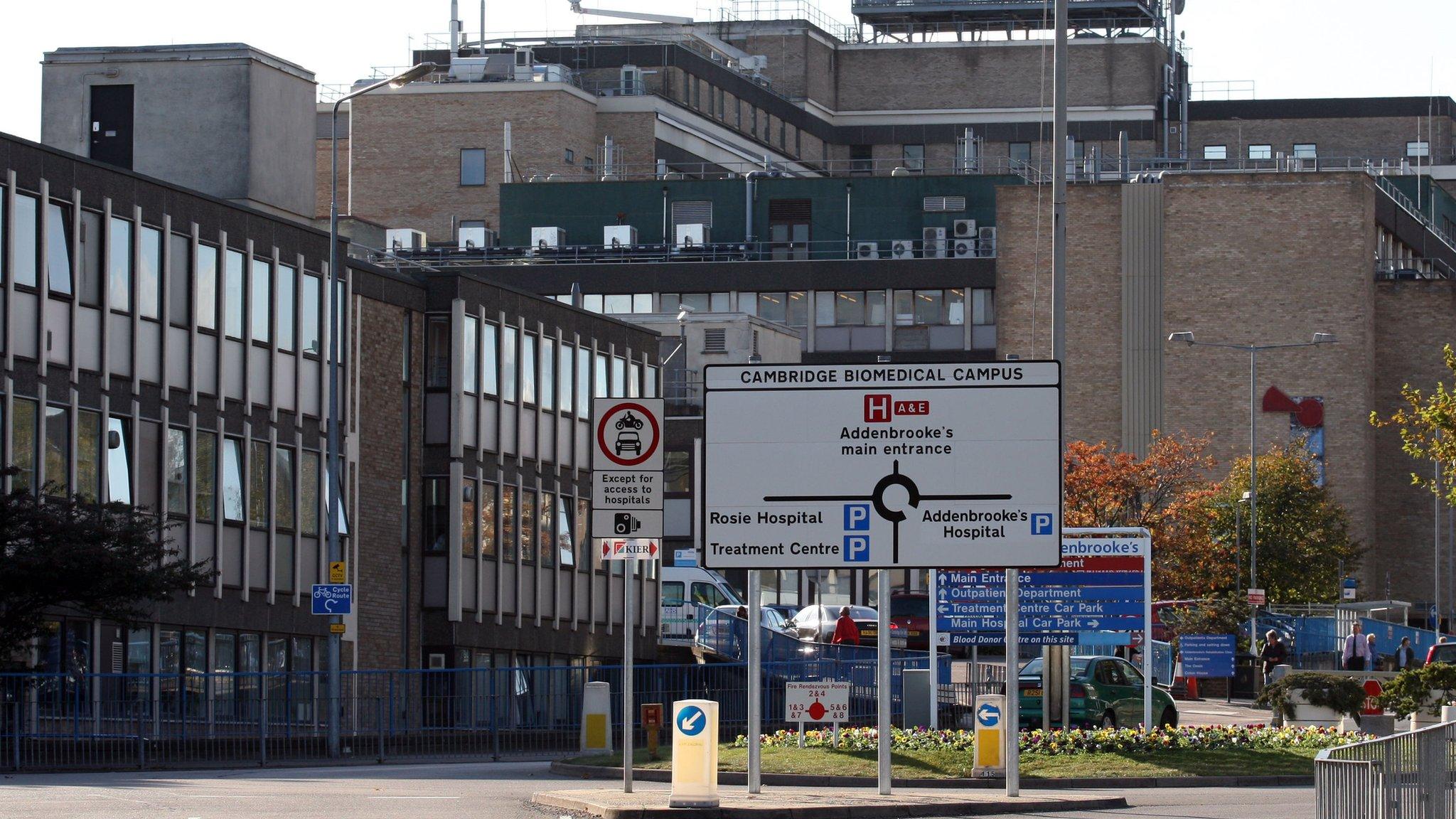
- Published17 September 2015

- Published14 September 2015

- Published14 September 2015

- Published31 July 2015
.jpg)
- Published28 July 2015

- Published7 January 2015
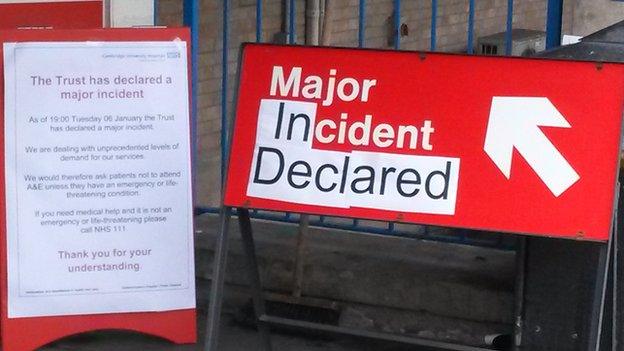
- Published7 January 2015
